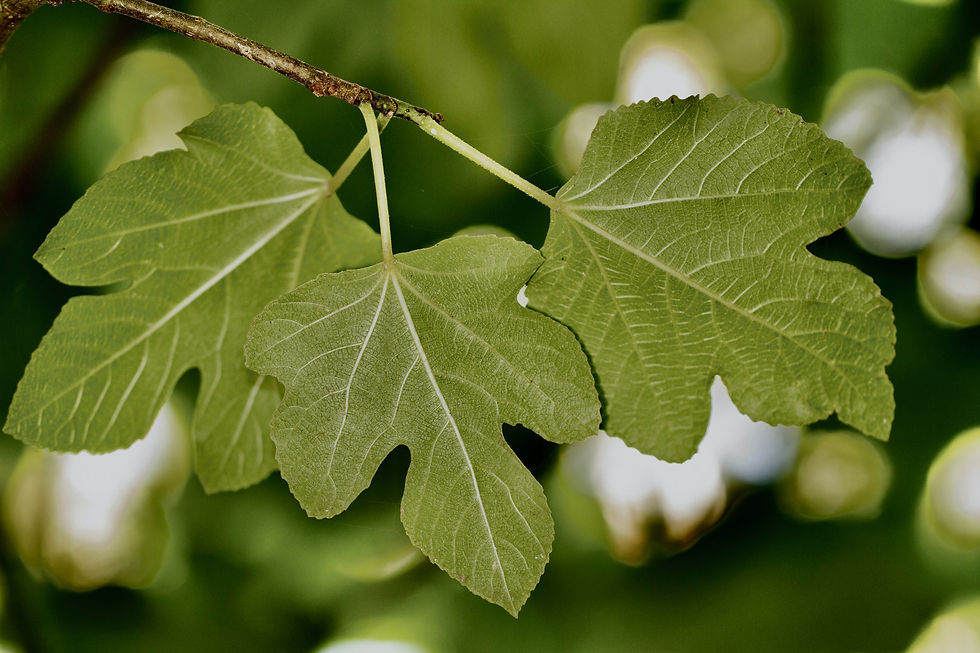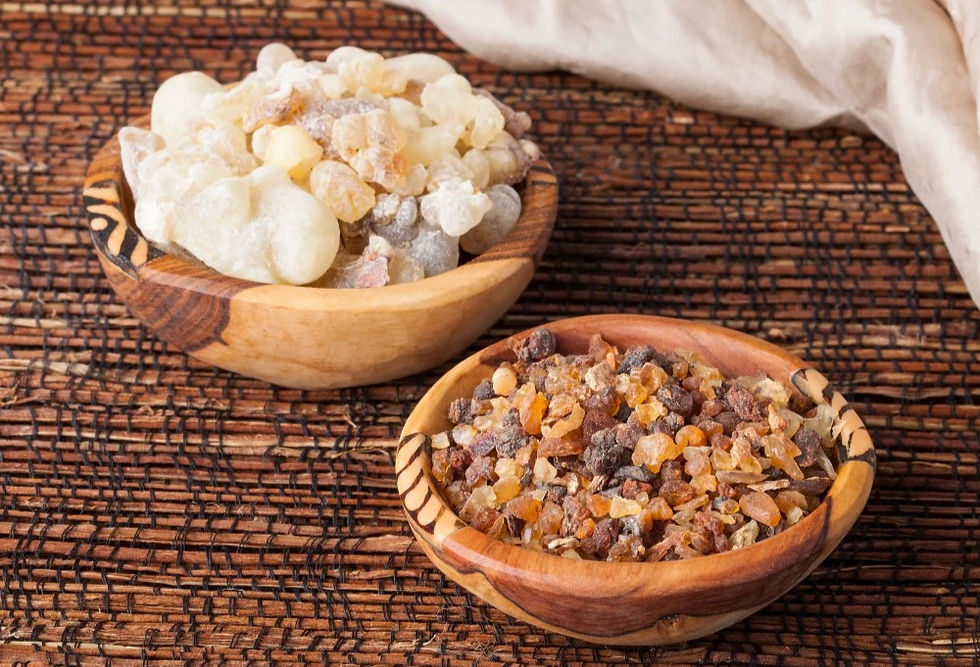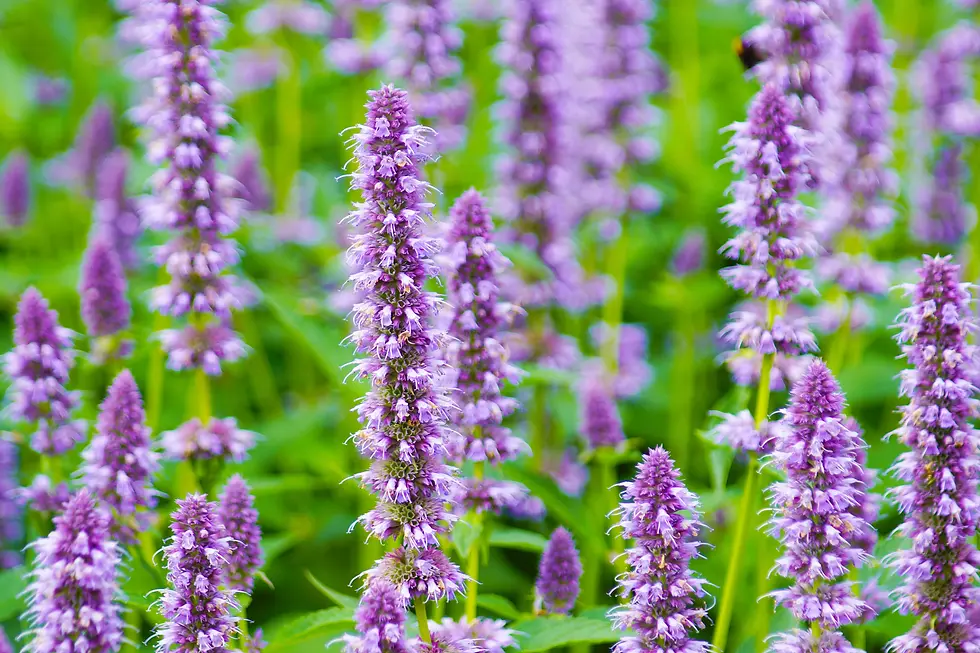Herbalism is Biblical! Our Creator is an Herbalist, My Proof
Today, many question whether they can practice herbalism in a biblical way. Join us on a journey through the scriptures, as we rediscover the rich heritage of biblical herbalism and explore how these plants can be used in harmony with our faith.
In the heart of ancient wisdom lies a forgotten treasure – the herbalism of the Bible. For millennia, these sacred plants have held a place in the pages of scripture, offering not just medicinal properties but also a profound connection to our Creator. Today, we embark on a journey through the scriptures to rediscover the rich heritage of biblical herbalism and explore how these plants can be used in harmony with our faith.
Healing Power of Herbs in the Bible
The Bible is replete with references to herbs and plants, often intertwined with stories of healing and faith. Let's delve into some of these fascinating passages:

1. Fig Leaves: A Symbol of Healing (2 Kings 20:5-6)
In 2 Kings 20:5-6, we find an account of King Hezekiah's miraculous healing. The Lord instructs him to take a lump of figs and place it on a boil, leading to his recovery. This passage not only showcases the healing power of figs but also underscores the belief in the divine connection between nature and well-being.
Turn again, and tell Hezekiah the captain of my people, Thus saith the LORD, the God of David thy father, I have heard thy prayer, I have seen thy tears: behold, I will heal thee: on the third day thou shalt go up unto the house of the LORD.
2Ki 20:6 And I will add unto thy days fifteen years...
2Ki 20:7 And Isaiah said, Take a lump of figs. And they took and laid it on the boil, and he recovered.

2. Sweetening Bitter Waters
(Exodus 15:22-25)
Exodus 15:22-25 tells the story of the Israelites' journey through the wilderness, where they encounter bitter water at Marah. Moses, in response to their distress, cries out to the Lord. In a divine act, a log is cast into the water, turning it sweet and drinkable. This event illustrates how God used a natural element, a piece of wood, to provide for His people's needs.
Exodus 15:22-25 (ESV), it is written:
"Then Moses made Israel set out from the Red Sea, and they went into the wilderness of Shur. They went three days in the wilderness and found no water. When they came to Marah, they could not drink the water of Marah because it was bitter; therefore it was named Marah. And the people grumbled against Moses, saying, 'What shall we drink?' And he cried to the LORD, and the LORD showed him a log, and he threw it into the water, and the water became sweet."

3. Holy Anointing Oil: A Blend of Sacred Herbs (Exodus 30:23-25)
Exodus 30:23-25 introduces us to the creation of the holy anointing oil, a sacred blend of herbs and spices, including myrrh, sweet cinnamon, sweet calamus, cassia, and olive oil. This oil was used for anointing priests and sacred objects, emphasizing the spiritual significance of these plants in the biblical context.
Exo 30:23-25
Take thou also unto thee principal spices, of pure myrrh five hundred shekels, and of sweet cinnamon half so much, even two hundred and fifty shekels, and of sweet calamus two hundred and fifty shekels,
Exo 30:24 And of cassia five hundred shekels, after the shekel of the sanctuary, and of oil olive hin:
Exo 30:25 And thou shalt make it an oil of holy ointment, an ointment compound after the art of the apothecary: it shall be a holy anointing oil.

4. Frankincense and Myrrh: Gifts for a King (Matthew 2:11)
Frankincense and Myrrh, two of the most famous biblical herbs, make an appearance in the New Testament in the form of gifts offered to the newborn Jesus by the Wise Men. This act of reverence and honor demonstrates the elevated status of these herbs.
In Matthew 2:11, they were gifts fit for a king: "They saw the child with Mary, his mother, and they bowed down and worshiped him. Then they opened their treasure chests and gave him gifts of gold, frankincense, and myrrh."

5. Hyssop: Cleansing Leprosy
(Leviticus 14:1-7, 49-53 and Exodus 12:22)
Hyssop, a humble herb, plays a pivotal role in cleansing rituals described in Leviticus and Exodus. It was used in the purification of those afflicted with leprosy and as an instrument for applying the blood of the Passover lamb on the doorposts of the Israelites' homes, signifying protection and redemption.
Psalm 51:7, "Purge me with hyssop, and I shall be clean; wash me, and I shall be whiter than snow."
Leviticus 14:1-7, 49-53, ESV): "Then the priest shall take the cedarwood and the hyssop and the scarlet yarn, along with the live bird, and dip them in the blood of the bird that was killed over the fresh water. And he shall sprinkle it seven times on him who is to be cleansed of the leprous disease."
Exodus 12:22 (ESV): hyssop is used for applying the blood of the lamb to the doorposts of the Israelites' homes. It says, "Take a bunch of hyssops and dip it in the blood that is in the basin, and touch the lintel and the two doorposts with the blood that is in the basin."

6. Aloe, Cinnamon, and Mint: Fragrant Significance (John 19:39, Proverbs 7:17-18, and Matthew 23:23)
Beyond their medicinal properties, various herbs are mentioned for their aromatic and symbolic significance. Aloe is included in the burial of Jesus, while cinnamon and mint are referenced for their fragrance and symbolic value in Proverbs and Matthew.
Aloe: In John 19:39, aloe is mentioned in the burial of Jesus: "Nicodemus also, who earlier had come to Jesus by night, came bringing a mixture of myrrh and aloes, about seventy-five pounds in weight."
Cinnamon: Proverbs 7:17-18 speaks of its fragrance: "I have perfumed my bed with myrrh, aloes, and cinnamon. Come, let us take our fill of love until the morning."
Mint: In Matthew 23:23, Jesus rebukes the Pharisees, saying, "Woe to you, scribes and Pharisees, hypocrites! For you tithe mint, dill, and cummin, and have neglected the weightier matters of the law: justice and mercy and faith."
As we journey through the scriptures, we rediscover the deep-rooted connection between biblical herbalism and faith. These plants not only served as remedies but also carried profound spiritual symbolism. In exploring these sacred passages, we gain a renewed appreciation for the beauty and wisdom found in the pages of the Bible, where the natural world is intertwined with the divine.
In the heart of ancient wisdom lies a forgotten treasure – the herbalism of the Bible. For millennia, these sacred plants have held a place in the pages of scripture, offering not just medicinal properties but also a profound connection to our creator.
.png)







